Photographs: Sreeram Selvaraj
As the Indian economy passes through one of its worst times, well known chartered accountant and Convenor of the Swadeshi Jaagran Manch Swaminathan Gurumurthy, in an exclusive interview with Shobha Warrier explains what ails the Indian economy, and the remedy to fix it.
India's economic growth is at 9-year low now. Is it because of the global slowdown or bad management by the finance minister?
I have three ways of responding to the question. First, the economic theories which we have adopted from the West are also responsible for this kind of situation. That is because these economic theories are based on financial capitalism. Their theory is that global capital financial flow will take care of the economy.
So, the normal precautions we take like trade deficit, current account deficit, unguided imports, have not been taken care of in the last 6-7 years. I would say the global financial capitalist theories failed in 2008.
Would you call it crony capitalism?
No. Crony capitalism is a word which the West invented to decry the Asian economies which are largely family based. Financial capitalism is founded on the theory that money generates itself and there is no need to have a guarded approach to money. Even savings is not needed and that credit will take care of everything. This kind of phenomenally irresponsible theories were generated in the last 30 years.
See how we applied the theory to ourselves. We relied on the funds which were flowing to the stock market and liberalised our imports based on that. If imports are liberalised consistent with exports, that is a cautiously liberalising economy. If you are going to liberalise your imports based on stock market money, it is based on the financial capitalist model which the West generated in the last 30 years. They have admitted now that it was a wrong model.
So, my first response is, it is the financial capitalist theories which we imported wholesale from the West that did our economy in. And, we felt that this financial flows will continue and kept on importing and run our economy. This was the first major mistake we did. We should have checked it sometime in 2009, maximum in 2010.Click on NEXT for more...
'Entire UPA is responsible for India's economic mess'
Photographs: B Mathur/Reuters
I will hold the entire UPA responsible. The commerce minister functions in a certain way, the finance minister functions in another and, the industries minister functions in yet another way. See, all these are interconnected.
Whether this financial capitalist model which makes you dependant on the global financial flows is a dependable, reliable, sustainable model is a decision one ministry cannot take; it has to be taken by the government as a whole based on consensus.
What about the role of the prime minister who is an economist?
Yes, he is supposed to be an economist though I would say that his economics knowledge is frozen 30 years ago.
Today in India, imports have increased tremendously while exports have slackened. Where will this lead to?
That is my second point. By importing irrationally, without applying our mind, we ran huge trade deficits with a country like China.
This has meant transfer of jobs from India to China. Huge power equipments in the power sector, petroleum sector, telecom sector etc are coming from China now.
Let us assume you have a huge exports surplus and you are throwing this money into China, then it doesn't matter. Here, you are bringing in money into the stock market and importing these goods from China. This makes no economic sense at all.
This year, we have a trade deficit of $36 billion with China. The trade deficit we have incurred with China in the last 3-4 years is around $120-130 billion. Overall, we have a trade deficit of $187 billion.
Click on NEXT for more...
'I am against MNCs because they promote consumerism'
Photographs: Carlos Barria/Reuters
Yes, it has affected the value of rupee, our economy, our capital goods sector and our employment.
The third reason why India's economic growth has suffered is you manage the economy through sentiments. This is the most foolish way of approaching an economy. While you must work on the fundamental strength of an economy, you are managing it on sentiments.
For example, it is not correct to say that because liberalisation has been put on a brake, Indian economy is going down the drain. It is because of over-liberalisation on the imports side and also on the over- dependence on the global capital finance model that the economy is under-performing.
And it is not because you have not allowed the Wal Mart to enter the retail sector.
Are you against the multi national companies entering the retail sector?
I am against corporates entering the retail sector but you can't ban them by law. There is only a niche population that needs big super markets and malls.
Are you against it because the big fish will eat all the small fishes?
I am against it because they promote consumerism. It will change the character of the Indian families. It will have a deeper socio-economic impact.
But I know that the capacity of the Indian corporates to damage the small and medium business people, is limited. Why do they want multinationals as partners? They want to comb it off like they did in the telecom sector. Why do they clamour for foreign investment when they should be protesting against it? They are only here to make money in the interim period.
Click on NEXT for more...
'The word reform itself is wrong'
Photographs: Truth Leem/Reuters
How much investment will India get if you open the retail sector? One billion? Two billion? They say, Indian economy is in difficulty because these kind of reforms are stopped and that the rupee value has to improve if the Indian economic growth has to revive.
According to me, the word reform itself is wrong. Reform implies as if somebody has deformed the economy! Who has deformed it? The very reformers were deformers once! You are trying to repair it and call it reform. It is again another kind of deform
What you have to do is, apply the most practical mode of reform.
What is the most practical form?
I will give you examples of what is not practical.
Trade is a very important sector in India. Instead of a corporate model, we follow a community model. Communities after communities are involved throughout India for hundreds of years in trade. And you want to replace these communities with corporates.
It is wrong to think that if you bring in corporates, they will rebuild your economy.
In India, we have seven crore small and marginal farming families who produce in such small quantities and they are linked by small traders. The average size of the land holding is 2 hectors. Corporates can never fill in this supply chain unless there is contract farming.And, if you bring in contract farming, rural India will be destroyed. Sixty-three per cent of the agricultural produce is distributed within the villa#8805 only 37-38 per cent get into the market. If you make these people contract farmers, they become landless labourers and the social consequences are unthinkable.
Click on NEXT for more...
'Only foreigners play in our stock markets'
Photographs: Vivek Prakash/Reuters
Absolutely. Only two and a half per cent of the Indian savings gets into the stock market. Only foreigners play there. And we call it our stock market.
There is no Indian orientation to our economic thinking. Our economic establishment is completely sold out to the western model of development as it was sold out to the Soviet model 30-40 years ago.
The corporate sector is not growing and it is the non-corporate sector which is the traditional sector that is growing.
And, Indian families are saving even today. Only because they are saving, the government is able to fund its deficits. They are able to get the capital requirements only from the Indian families. And, you want to destroy the conservative nature of the families by promoting consumerism. If their savings go down, from where will the Indian government get its capital?
But has it not gone down because of inflation, price rise and the value of the rupee falling?
I agree with you. Already, there is pressure on them due to inflation. So, why do you promote consumerism?
For our capital requirement, we are getting only two per cent from outside India and the rest of the capital is generated within the country. And our capital investment is 32-34 per cent. We could generate that much capital only because of the savings habit of the people. And, you want to destroy it.Click on NEXT for more...
'When you depend on stock market money 8-8.5% growth is not sustainable'
Photographs: Mike Segar/Reuters
Yes. This way, you have hit the economy at its base. In 2004, when the telecom sector grew, you should have had the far sight to invest in hardware. You began importing hardware from outside. When you were planning huge power sector expansion, you should have ensured that the power sector capital equipment are generated in India. Instead, you made imports easy. Now, all the power plants manufacturers in India are under stress.
How do you explain the economic growth in double digits till recently?
Growth beyond 8 and 8½ per cent is because of financial capitalism. I will not take it as real growth. 8-8.5 per cent growth is something India could achieve on its own. Once you are dependant on stock market money for financing your economy then 8-8.5 per cent is not sustainable. India, however, can achieve 8-8.5 per cent growth on its own.
But now, it has slipped to almost 5...
That's because of past mistakes. If they rationalise the import duty structure like put anti-dumping duty on imports of certain categories from China and others, obviously, the industrial activities will pick up.
Click on NEXT for more...
'Value of the rupee value is not linked to the fundamentals of Indian economy'
Photographs: Jayanta Dey/Reuters
The easy availability of capital deceived us like the Americans were deceived by the idea that the rise in the home value is going to be a permanent affair.
Why do you think the value of Indian rupee is coming down drastically?
That is because India's rupee value is linked to global economy. It's not linked to the fundamentals of Indian economy. Nobody looks at the huge capital that is generated by the savings of the Indian families and give credit to Indian rupee. They are only looking at the exports balance sheet. At 25 per cent depreciation of rupee value, we lost 40 per cent depreciation in the last 3 years. That means the rupee value of our imports has gone up by Rs 7-8 lakh crore. You are importing that much inflation into India.
How do you react to some agencies rating India poor?
That is why I said, Indian economy runs by managing sentiments. If Standard & Poor rated India well, we are okay. If S&P threatens to rate down India, we are in trouble.
Alan Greenspan's model of managing the American and the global economy has failed with the collapse of the financial capitalism. Financial capitalist model which ran the world for 30 years, is no more a sustainable model.
Germany and France have already said that they didn't want the Anglo-saxon financial capitalist model. It overrides all other factors in the economy, like production, distribution, capital formation, etc.
Do you feel the German model of giving more importance to domestic production and distribution will be followed soon by other countries? Germany is one country that is not affected by the global slow down now.
I will put it this way. Domestic should be the core while the external should be the additive. It cannot be the reverse. In China's case, it is the reverse. It will be a problem for China. They are running a huge risk. While domestic consumption is 57-58 per cent in India, it is only 36-37 per cent in China.
I would say India has a balanced internal economy; only its external economy is bad.
Click on NEXT for more...
'Now the whole world is becoming swadeshi'
Photographs: Vincent Kessler/Reuters
It is already happening but there is no debate in India. All over the world, Anglo-Saxon model and derivatives are being discussed but is there any debate in India? Those who decide economic policies have nothing to do with India; there is a lack of understanding. That is the reason for our sharp downfall.
See, even today, people trust the rupee and save money. Most still plan a surplus budget. Can you get a better kind of people to frame economic policies?
Do you feel the policy makers and economists of India look towards West while framing policies?
Why talk about economists, what about the media? Theories from the West are sold to India and turned into convictions.
As the Convenor of Swadeshi Jaagran Manch, how worried are you to see exports coming down and imports going up?
I am really worried. Now the whole world is becoming swadeshi. Look at the way Germany is becoming swadeshi. America is trying to turn swadeshi. What we say as swadeshi is, domestic economy, domestic savings, etc. should be the core of the economy and global can only be additive.
Globalisation changed this and that is what we objected to. Each country has every right to protect its interest, like what Obama is trying to do now.
Click on NEXT for more...
'Probably Pranab Mukherjee knows more about India than Manmohan Singh'
Photographs: B Mathur/Reuters
Will Pranab Mukherjee going to Rashtrapathi Bhavan and Manmohan Singh taking charge, have any impact on the Indian economy?
It is certainly not going to make any difference. Probably Pranab Mukherjee knows more about India than Manmohan Singh or Montek Singh Alhuwalia.
Where do you see Indian economy in the coming years?
Ultimately, the country will correct itself. The entire growth was not brought about by the government or the government policies.
When the government began withdrawing the restrictions on people, they began working on their own. You know, corporate sector has been able to add only 12 lakh jobs in the last 20 years. Government jobs have come down in this period. The rest of the growth has been because of the people of this country.
You mean, the entrepreneurs?
Yes, the entrepreneurs in the small and medium sector and the communities are generating wealth for India.
It is the families that are generating savings but you are celebrating fund managers, stock market investors and big corporates who are doing nothing. If you concentrate on the entrepreneurs and not on ASSOCHAM, FICCI and CII, India will produce better results. If one secretary of the government of India is deputed to take care of the 350-400 industrial clusters, they will understand India better and India will perform better.
What kind of changes you foresee globally?
Countries which are leading the world now will not lead after 10 years. There will not be anything like a global order. WTO will lose all its meaning; it has already become redundant. I had said in 1994 that WTO would collapse. There will not be a single global leader; every country will be working for themselves. It will be competitive capitalism but at the national level.
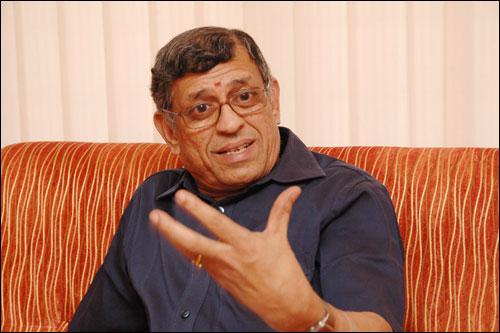
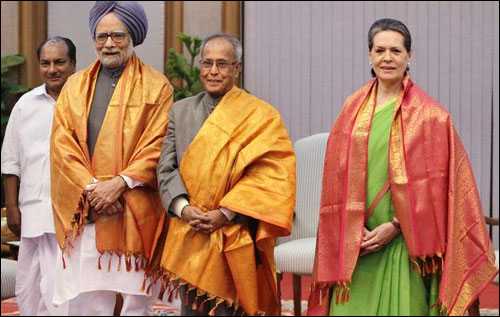

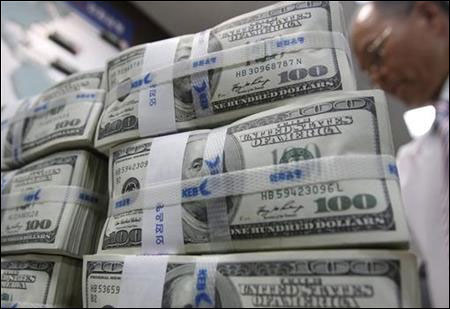
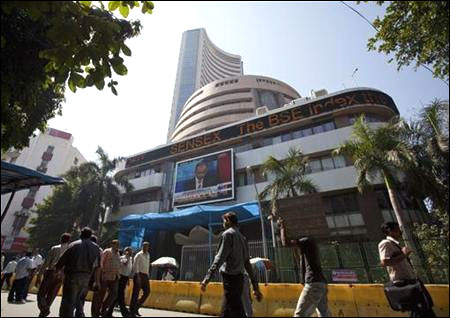
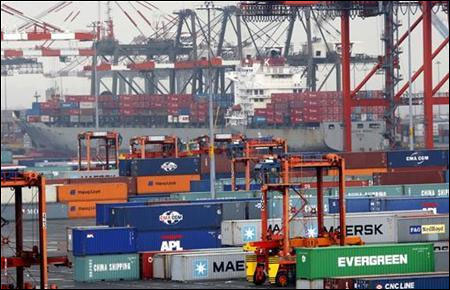
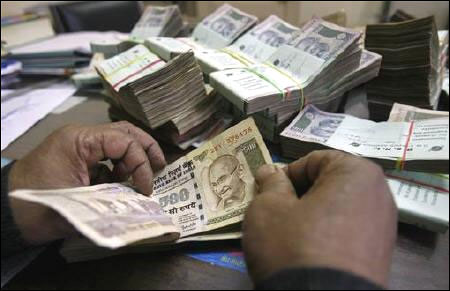


article